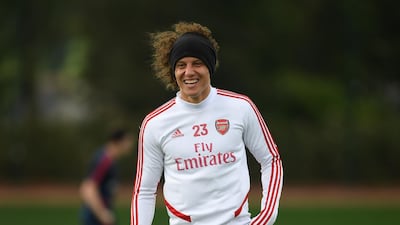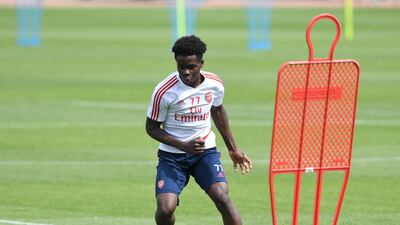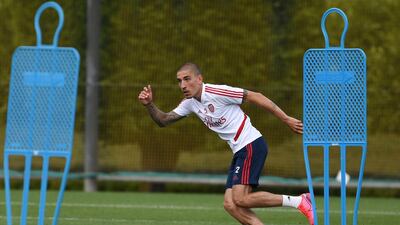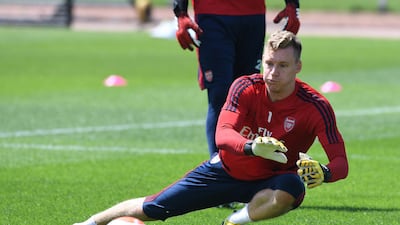David Luiz has only missed one game of Mikel Arteta’s reign as Arsenal, and that was due to suspension. If he sits out the end of the season, potentially including an FA Cup final and a charge for Champions League football, it could be because he is ineligible again. But for a very different reason.
The Brazilian has become one of the most prominent of the Premier League’s June 30 gang: the group of players whose contracts expire then. Some have recently been granted extensions and some are fringe figures. Luiz, however, represents more of a dilemma. Arsenal’s eventual choice will shine a light on the direction of the club and the state of football finances during a pandemic.
It could also bring an anticlimactic farewell to England for an idiosyncratic player. Luiz has long polarised opinion but has always had admirers. He has had talks with Benfica and said he dreams of ending his career with his former club.
He could have a third employer in 12 months. His surprise switch from Chelsea represented a short-term gamble that, in a typical Luiz paradox, may have both succeeded and failed: Arsenal are the division’s only unbeaten team in 2020 but outsiders for a top-four finish. They have only let in four league goals with him on the pitch in the calendar year but he has conceded more penalties – three – than anyone else in this season’s Premier League. His innate confidence in his judgement can be misplaced.
Rewind to August and Arsenal had lost Laurent Koscielny but while Luiz’s transfer fee was a discounted £8 million (Dh36m), his year at the Emirates Stadium, including agents’ fees and salary, is reportedly costing £24 million; for the record, his representative Kia Joorabchian has refuted that figure.
But Arsenal had the chance to extend his stay; amid the uncertainty, they did not. Joorabchian said the option to trigger another year’s contract expired during football’s hiatus but added: “There is no desire to leave. The chances [he stays] are very high.”
Perhaps. Arsenal are in the eye of an economic storm and a club at a crossroads. They made a £27 million loss last season, drew almost a quarter of their income from matchday revenue and may have no European football next year. Coronavirus could hit them more than most. Their budget is being stretched and Luiz is a big earner.
Their defence, meanwhile, is in a state of transition. It is in part a generation game, in part a question of footballing philosophy. Luiz suits a role in the middle of three centre-backs, but Arteta prefers to field two. The Spaniard is influenced by Pep Guardiola and the Dutch school of thinking, where left-footed centre-backs are valued for their ability to accelerate the build-up. Arsenal had none until Arteta borrowed Pablo Mari and they could turn his loan from Flamengo into a permanent deal.
Plus the £25 million French teenager William Saliba, who is 14 years Luiz’s junior, is due to arrive after being loaned back to Saint-Etienne for a season. Include Rob Holding, Calum Chambers, Shkodran Mustafi and Sokratis Papastathopoulos and Arsenal could have seven centre-backs. It would be at least two too many, especially for a club trying to cut costs, and while Sokratis and Mustafi are out of contract next year, Arsenal have long struggled to offload the erratic German.
So is Luiz the cornerstone or the casualty? Do Arsenal bank on improvement in the next 13 months or settle for more long-term goals? Do they prioritise his contract when Bukayo Saka’s feels the key one? Because the decision about Luiz feels indicative of unsettling times and Arsenal’s future alike.









